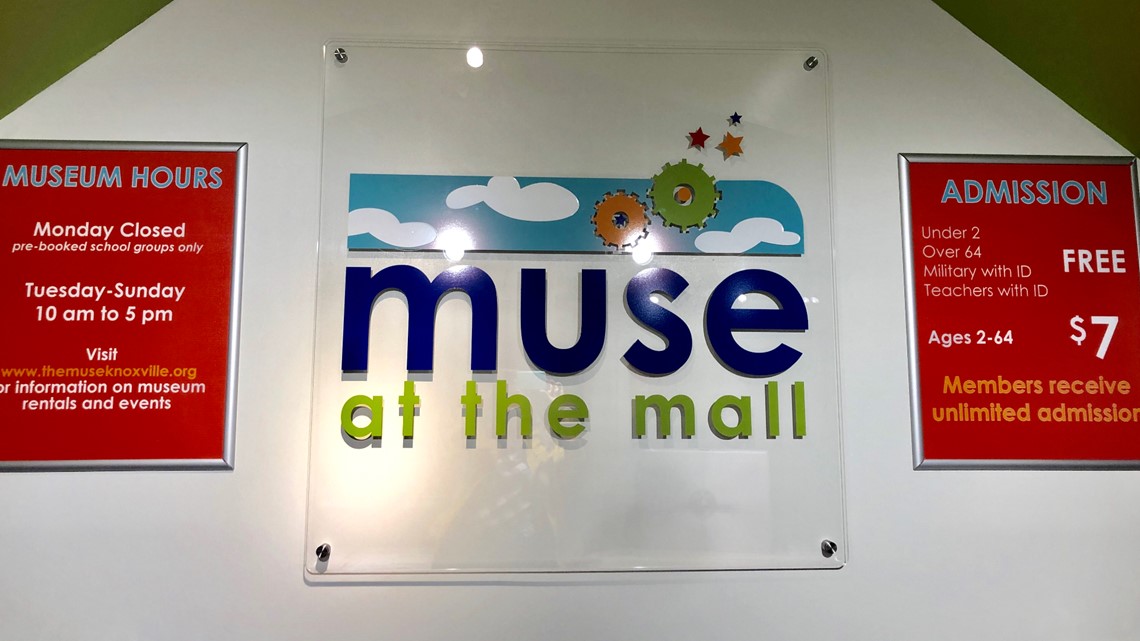


#Dr muse knoxville tn professional
The 400-acre University of Tennessee campus plays a vital role in the city's cultural life with its many museums, sports facilities and professional complexes. Old Gray Cemetery at 543 North Broadway is named for English poet Thomas Gray, who wrote the poem “Elegy Written in a Country Churchyard.” The cemetery was established in the 1850s as part of the Rural Cemetery Movement and contains many examples of Victorian art and architecture. In Haley Heritage Square, at the corner of Dandridge and Hazen avenues, is a larger-than-life bronze statue of Pulitzer Prize winner Alex Haley holding a copy of his book “Roots.” Haley is buried on the grounds of his boyhood home in Henning.

The collections include photography, sketches, fine art, newspapers and books. The Beck Cultural Exchange Center, (865) 524-8461, is a museum for the research, preservation and display of the achievements of Knoxville's African Americans in east Tennessee, the Southeast and across the country from the early 1800s to the present. Gay St., phone (865) 523-7543 The Ewing Gallery, on the University of Tennessee campus at 1715 Volunteer Blvd., phone (865) 974-3200 and the University Downtown Gallery, 106 S. Today, the city is home to many art galleries, including the Arts & Culture Alliance at 100 S. Knoxville was host of the 1982 World's Fair, a tribute to its emergence as a major metropolis. It is open for tours by appointment phone (865) 522-8661.ĭuring Reconstruction, Knoxville recovered rapidly and has since become the business center of the rich East Tennessee Valley. The elegant Mabry-Hazen House, 1711 Dandridge Ave., an 1858 Italianate frame house that served as headquarters for both sides during the Civil War, is furnished with original artifacts such as china, silver, crystal and antique furniture. James Longstreet failed to regain the city from Gen. The only major engagement was in 1863, when rebel forces led by Gen. Knoxville was the territorial capital 1792-96 and the state capital 1796-1811, and again in 1817.ĭuring the Civil War Knoxville was occupied by both Confederate and Union armies. In 1791 the first territorial governor, William Blount, chose James White's Fort as the capital of the territory and renamed it for Secretary of War Henry Knox.Įarlier that year the chiefs of the Cherokee Nation met along the Tennessee River and ceded all claims in the wilderness valley to the United States. There is no way to 'opt out' or 'suppress' the NPPES record data for health care providers with active NPIs.About KnoxvilleAt the close of the 18th century a flood of settlers burst into Tennessee, transforming the Knoxville outpost on the Tennessee River into a gateway to the West. The information disclosed on the NPI Registry are FOIA-disclosable and are required to be disclosed under the FOIA and the eFOIA amendments to the FOIA. Our Data: Information on is built using data sources published by Centers for Medicare & Medicaid Services (CMS) under Freedom of Information Act (FOIA). Covered health care providers and all health plans and health care clearinghouses must use the NPIs in the administrative and financial transactions adopted under HIPAA (Health Insurance Portability and Accountability Act). The NPI must be used in lieu of legacy provider identifiers in the HIPAA standards transactions. NPI Number: The National Provider Identifier (NPI) is a unique identification number for covered health care providers. Participating providers have signed an agreement to accept assignment for all Medicare-covered services. Most doctors, providers, and suppliers accept assignment, but you should always check to make sure.
#Dr muse knoxville tn full
Medicare Assignment: Assignment means that your doctor, provider, or supplier agrees (or is required by law) to accept the Medicare-approved amount as full payment for covered services. This program also covers certain younger people with disabilities (who receive Social Security Disability Insurance - SSDI), and people with End-Stage Renal Disease (permanent kidney failure requiring dialysis or a transplant, sometimes called ESRD. Medicare Program: Medicare is a federal government program which provides health insurance to people who are 65 or older.


 0 kommentar(er)
0 kommentar(er)
